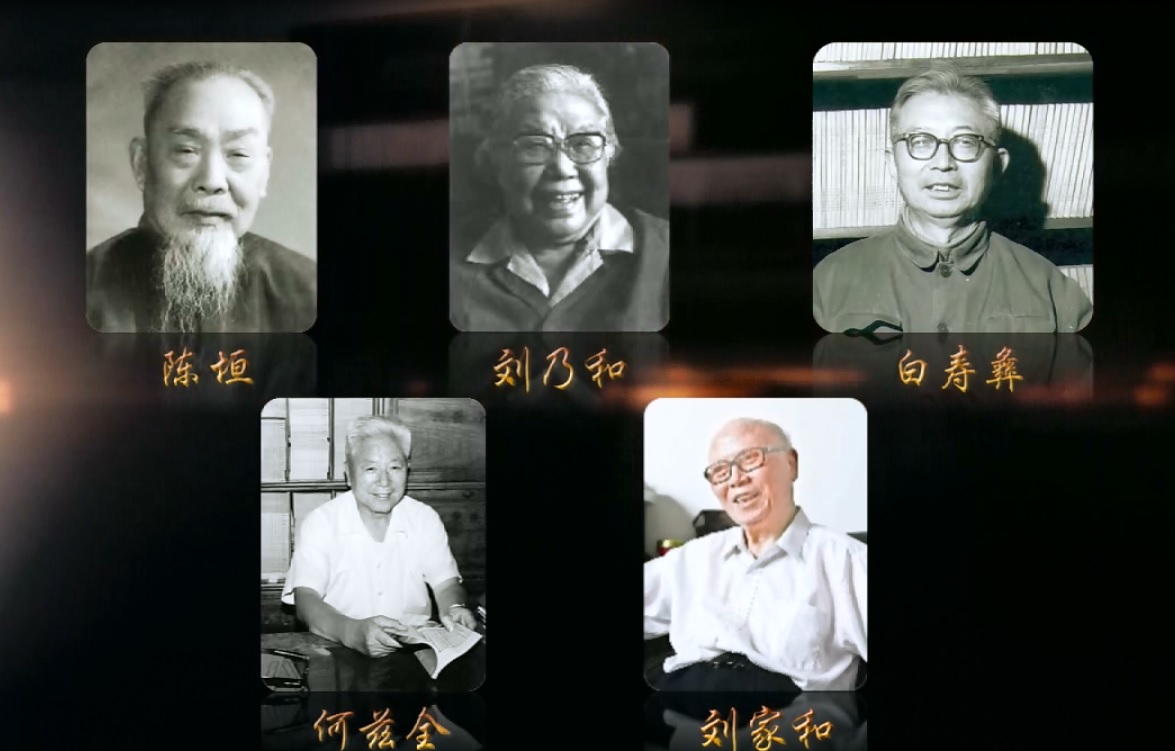
当前课程知识点:Culture and Tourism > Week 5: Sustainable Indigenous Tourism > 5.2 Case Study and Conclusion: Great Expectations for Tourism > 5.2.2 Conclusions:Great Expectations for Tourism
返回《Culture and Tourism》慕课在线视频课程列表
返回《Culture and Tourism》慕课在线视频列表
有四点结论
人们对旅游业寄予厚望
特别对是很多土著居民、很多土著迷的加拿大而言
有国家公园、国家级文物储藏地、世界遗产
确定的是,一旦你有了旅游目的地
人们就会开始开车到目的地
或者这个目的地非常流行,人们也会去旅行
其中一个是在2018年被提名的暂定遗址
在2017年开始的提名过程中
一个叫Kerr Garlic的遗址参与了遗址提名过程
在过去的十年里,Kerr Garlic在北极的高海拔地区
越来越少的冰层
使得探险船和游船有了更大的航行空间
所以这些人中的很多人很长一段时间
都没有见过大量的西方人
两年前
一艘小游船第一次来到这个地方
在Kerr Garlic海岸着陆
那是一个非常遥远的地方,他们带着探险服上岸
他们想四处看看
他们想看看这个社区是什么样子的,而当地的土著人是什么样子的
我敢肯定他们对正在发生的事情感到害怕
他们跑回家,锁上门
只是不知道怎么和游客相处
他们没有一些招待游客的服务
所以对于其中的一些景点来说,旅游业会带来一种交流
你知道,经济发展带来为家庭工作的机会
和其他方面来支持我们的文化发展
但是,这实际上意味着
还有另外一个因素
关于控制或商业和工业发展水平的问题
在经济发展方面
加拿大各地的许多土著组织
都求助于发展赌场
因为作为加拿大条约权利的一部分
他们被允许发展赌场或其他游戏类活动
加拿大各地的一些组织,你们的土地上有赌场吗
但与此同时,还有一些
更大更突出的地方不想要赌场
因为他们知道赌场的对经济和社会后果
以及一些可能与赌场有关的犯罪活动
通过旅游业
通过访问和对其保护区所在地的了解
而引起的更多关注
人们对在旅游业发展加快的同时
也感到担忧
第三部分是增加加拿大本土世界遗产的数量
当然是对我国保护的重新审视
再次,从自然文化的角度来看
有多少注意力
放在了文化传统、文化遗产,传统的设施,传统的环境知识上
所有这些不同方面
实际上都对你如何看待某一遗址非常重要
但更重要的是,你如何协调你的资源(无论是人力,财力还是其他方面)
以保留和维护该站点上进行的保护工作
这在管理计划中是如何体现的呢
它如何反映在遗址的评价中
而且,更重要的是
如何改变人们对遗址的期望
遗址实际上是如何管理和发展的
最后,还有一些基本问题需要解决
特别是在加拿大
我们称之为真相与和解委员会
有94项行动呼吁,这些基本上是94个项目
应加以处理
以便更好地协调加拿大的非土著居民和土著居民
以便更好地为国家的繁荣而共同努力
仍然有一些问题
与缺乏教育机会、缺乏良好的基础设施、健康问题、犯罪有关
各种与发展有关的问题确实仍在个别社区内
造成了一些底层的文化和社会问题
最后,你能得到提名吗
你可以庆祝文化或传统
但是同时
我们确实需要理解和支持社区内
需要解决的基本问题
不仅要支持这些遗址的交流和其他互动
更重要的是,支持这些遗址及其周围社区未来
变得更具独立发展的可能
本课程结束,谢谢您
谢谢你留下来
我希望你觉得它很有启发性。祝你一切顺利。
-1.1 Introduction course outline and UNESCO World Heritage Program
--1.1.1 Introduction of culture and tourism course outline
--1.1.2 Introduction of UNESCO World Heritage Program(1)
--1.1.3 Introduction of UNESCO World Heritage Program(2)
-1.2 Cultural Heritage-1
--1.2.1 The meaning of culture heritage
--1.2.2 Criterion(i): masterpiece of human creative genius
--1.2.3 Criterion(ii): exhibit important interchange of human value
--1.2.4 Criterion(iii): bear a unique or at least exceptional testimony
--How can the public understand the importance of heritage?
-1.3 Cultural Heritage-2
--1.3.1 Criterion(iv): an outstanding example in human history
--1.3.2 Criterion(v): represent a culture or human interaction with environment
--1.3.3 Criterion(vi): associated with living traditions of outstanding universal significance
-1.4 Natural Heritage
--1.4.1 Natural heritage features, formations and criterions
--1.4.2 Cases studies of natural heritage
--Cultural landscape meanings: The case of West Lake, Hangzhou, China
--How to access heritage of your hometown?
-2.1 Mixed Culture and Natural Heritage
--2.1.1 Mixed heritage operational guidelines and cases (1)
--2.1.2 Mixed heritage operational guidelines and cases (2)
--2.1.3 Mixed heritage operational guidelines and cases(3)
-2.2 Authenticity, Integrity and Cultural Routes
--2.2.1 How to determine authenticity and integrity
--2.2.2 Heritage routes and heritage canals (1)
--2.2.3 Heritage routes and heritage canals (2)
--What do you think about cultural heritage categories?
-2.3 Special Heritage and Sustainable
--2.3.1 Physical remains of the history of technology and industry
--2.3.2 Transboundary Heritage, Serial Heritage, Serial/Transnational Heritage
--2.3.3 Intangible cultural heritage
--2.3.4 UNESCO World Heritage and Sustainable Tourism Programme
--Recovering the Memory of Ourselves for the Sustainable Cites
--Week 2 quiz
--What do you think about cultural heritage categories?
-3.1 The Australia’s Heritage System and Sydney Opera House
--3.1.1 The Australian Heritage System
--3.1.2 Case Study: The Sydney Opera House
-3.2 Role of the ISCCL and Cultural Landscape (1)
--3.2.2 Uluru-Kata Tjuta National Park
--3.2.3 Honghe Hani Rice Terraces
-3.3 Role of the ISCCL and Cultural Landscape (2)
--3.3.1 West Lake cultural landscape (1)
--3.3.2 West Lake cultural landscape (2)
-3.4 Rural Landscapes as Heritage
--3.4.1 ISCCL Principles Concerning Rural Landscapes as Heritage
-3.5 Case Study: Mongolian Altai
--3.5.1 Nature Culture Integration & the Mongolian Altai(1)
--3.5.2 Nature Culture Integration & the Mongolian Altai(2)
--Week 3 quiz
--Discussion: What do you think is the role of ISCCL?
-4.1 Introduction of the Meaning of 'landscape’
--4.1.1 Brief introduction of landscape and culture
--4.1.2 The conceptual framework of cultural landscape
-4.2 Landscape Values
--4.2.1 The word “landscape” itself and differences in Western, Eastern
--4.2.2 Cultural significance for heritage source
--Discussion: What do you think the cultural landscape attracts you?
-4.3 Reading the Landscape: Identification and Assessment
--4.3.1 Planning model for heritage conservation management policy
--4.3.2 Cultural landscape resources evaluation steps
--Article: Cultural mapping: Intangible values and engaging with communities with some reference to As
-4.4 Case Study: Wingecarribee Historic Landscape
--4.4.1 Case study:Wingecarribee historic landscape study(1)
--4.4.2 Case study:Wingecarribee historic landscape study(2)
--Week 4 quiz
--Discussion: What should we do to strengthen the protection of cultural landscape?
-5.1 Indigenous Tourism
--5.1.1 Indigenous tourism background
--5.1.2 World heritage and indigenous peoples
--5.1.3 Tourism issues at Canadian indigenous world heritage sites
--Discussion: What challenges indigenous World Heritage faces?
--Article: State conceptions of indigenous tourism in Chile
-5.2 Case Study and Conclusion: Great Expectations for Tourism
--5.2.1 Case study Pimachiowin Aki
--5.2.2 Conclusions:Great Expectations for Tourism
--Disussion: Do you have any experience of indigenous tourism?
--Week 5 quiz
-6.1 The Definition of Heritage in Heritage Performance Study
--6.1.1 The definition of heritage in heritage performance study
--6.1.2 Heritage performance and meaning making
--6.1.3 Two key issues emerging from qualitative study
-6.2 Heritage Performance - Evidence from Australia, England and USA
--6.2.1 Heritage performance - reinforcement
--6.2.2 Heritage Performance - inter-generational communication and social values
--6.2.3 Heritage performance - recognition and respect
--6.2.4 Heritage performance - education
--Article:Theorizing museum and heritage visiting
-6.3 The Conclusion of Heritage Performance
--6.3 The conclusion of heritage performance
--Week 6 quiz
--Discussion: What kinds of heritage performances have you learned in this week?


